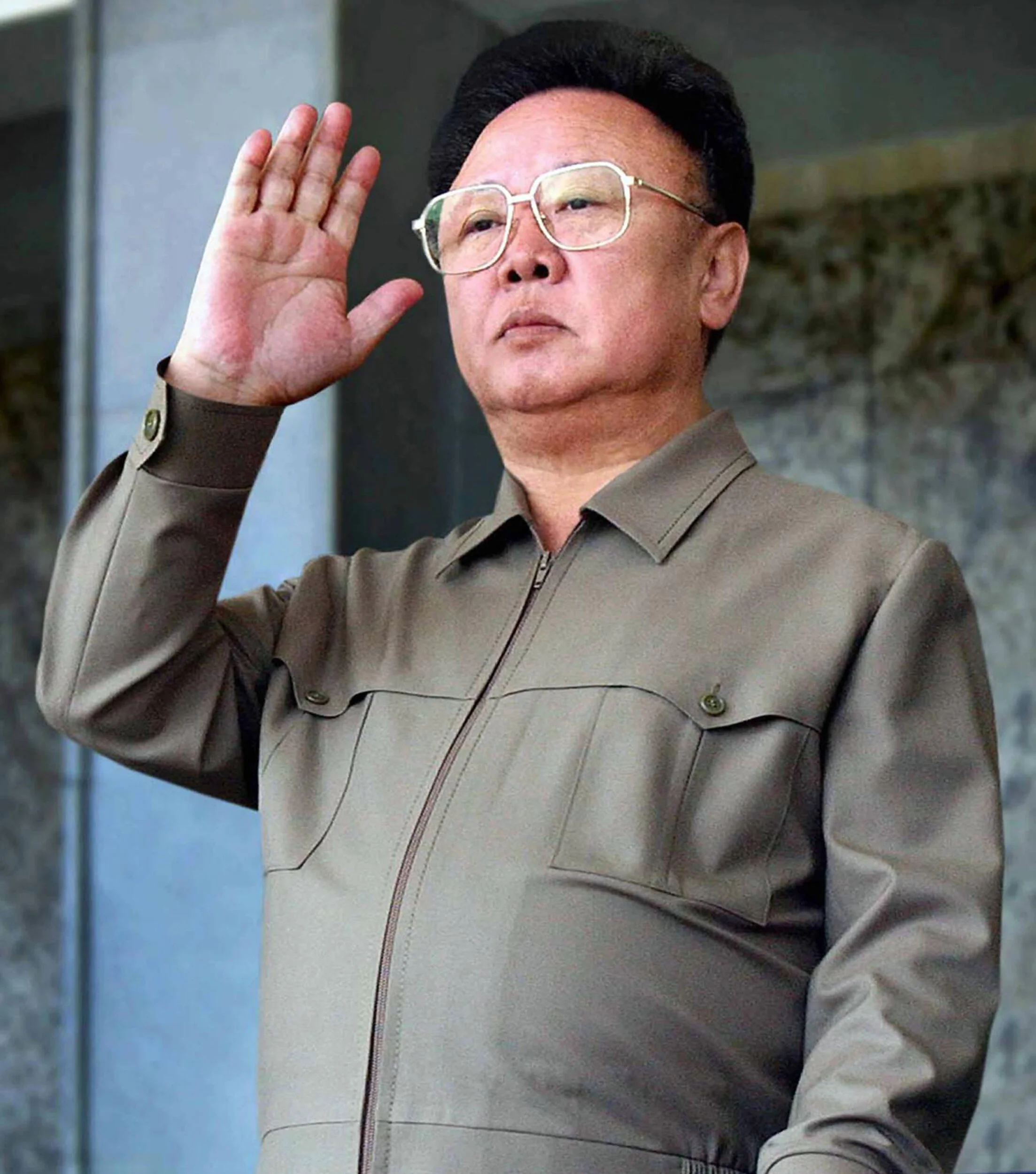Kim Jong Il Was Determined To Knock South Korea Off Its Movie-Making Perch
Today, South Korea has achieved international recognition as a filmmaking powerhouse. In February 2020, Bong Joon-ho’s movie, Parasite, made history as the first foreign language Best Picture winner at the Academy Awards. Other filmmakers like Park Chan-wook – director of Oldboy and The Handmaiden – have acquired similar prestige on the world stage.
But not everyone on the Korean Peninsula has been happy with this meteoric rise…
In North Korea in the 1970s, dictator-in-waiting, Kim Jong-il, cottoned on pretty quick to the fact that filmmakers in the South were beginning to make a name for themselves. And he was determined to do whatever he could to stunt their progress.
Kim Jong-il was passionate about movies. Growing up, he made full use of the fact that his father was the North’s strongman leader. As a teenager and a young man, he demanded his father’s diplomats bring him foreign films. These works were banned for men and women on the street. But for the elite of North Korean society, a totally different set of rules applied.
North Korean diplomats posted abroad would request film prints to borrow and watch in private. They’d make illicit copies and ship them back home to Kim Jong-il. The young leader-to-be’s private movie library grew until he had over 20,000 titles – one of the biggest private film collections anywhere on the globe.
Kim’s tastes were wide-ranging. But he had his favourites, as Paul Fischer – an expert on the history of North Korean cinema – explains in Real Dictators:
Kim Jong-il.
“He watched everything from Japanese gangster flicks and erotic flicks, to Hollywood to Bollywood. But it seems like he preferred the kind of Hollywood blockbuster mainstream films that a 30-year-old would like at the time. And so he would tell people that the James Bond films were his favourite films, horror films like Friday the 13th. He loved Rambo First Blood… Sean Connery was favourite actor; he would watch anything with Elizabeth Taylor in it. In later life, he met Madeline Albright and talked to her about Amistad and all these films that had been nominated for Oscars at the time. He liked big Hollywood mainstream films.”
In the communist dictatorship of North Korea, films were a powerful form of propaganda.
“Lenin had said something about cinema being the most important tool of propaganda in a socialist country. And Kim Il-sung before Kim Jong-il really believed in that. So as early as 1948, when they founded the nation, the first thing he did was create a national centre for the cinema… If the people didn’t know how to read or write, it didn’t matter. They could still enjoy a film.”
In the 1970s, Kim Jong-il was promoted from junior civil servant to the position of North Korea’s Propaganda Chief. Overseeing the country’s production of movies was a key part of his job.
Kim wanted to rival the South with movies of his own. But North Korea was an insular dictatorship. Shut off from the world, it simply hadn’t developed the movie-making talent and technical know-how necessary to produce a hit.
Kim knew that if he wanted to make a blockbuster, he needed to acquire talent from elsewhere. So in January 1978 he hatched a plan of the utmost audacity. This plan bore all the hallmarks of the movie thrillers Kim loved so much, as Paul Fischer explains:
“Because he never really left North Korea, he sort of took what he saw in Hollywood films to be sort of realism… He thought James Bond films were essentially docu-dramas about how espionage is done in the West.”
Choe Un-hui was the name of South Korea’s most glamorous and successful film actress.
“She had been considered the most beautiful woman in Asia. She was the most famous actress in Southeast Asia in the 1960s. She’d been one of the first fashion models in South Korea… She was known everywhere.”
One day, Choe was approached by a filmmaker from Hong Kong who was offering her a script to direct and star in. He wanted her to come to Hong Kong to meet him. Choe was flattered and cajoled, until she was asked to accompany the filmmaker to the coast, where a top producer supposedly lived.
A car carrying Choe wended its way out of Hong Kong and towards the luxury resort of Repulse Bay. But when Choe arrived, the beach was empty.
The faint hum of two light engines became audible in the distance. Two speed boats appeared on the horizon. They were headed straight in Choe’s direction. Because this meeting was a trap.
A group of men jumped ashore and hauled Choe onto the boat. After a six-day boat ride, the North Korean coastline came into view. This was to be Choe’s new home.
Soon after, her ex-husband – Shin Sang-ok – one of South Korea’s most revered directors, was kidnapped in similar circumstances. Together, they would be forced to make a variety of movies for their tyrannical producer, Kim Jong-il. It would be years before they could make their escape.
Subscribe to Real Dictators to hear the full story of one of the oddest collaborations in the history of cinema, and learn how Choe and Shin finally escaped the clutches of North Korea’s nefarious movie mogul.

